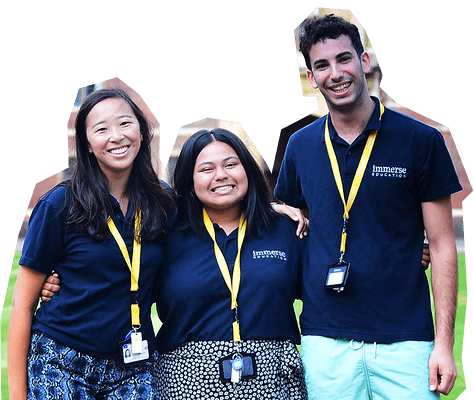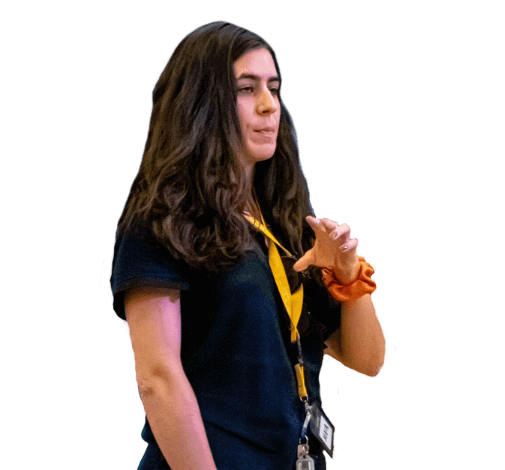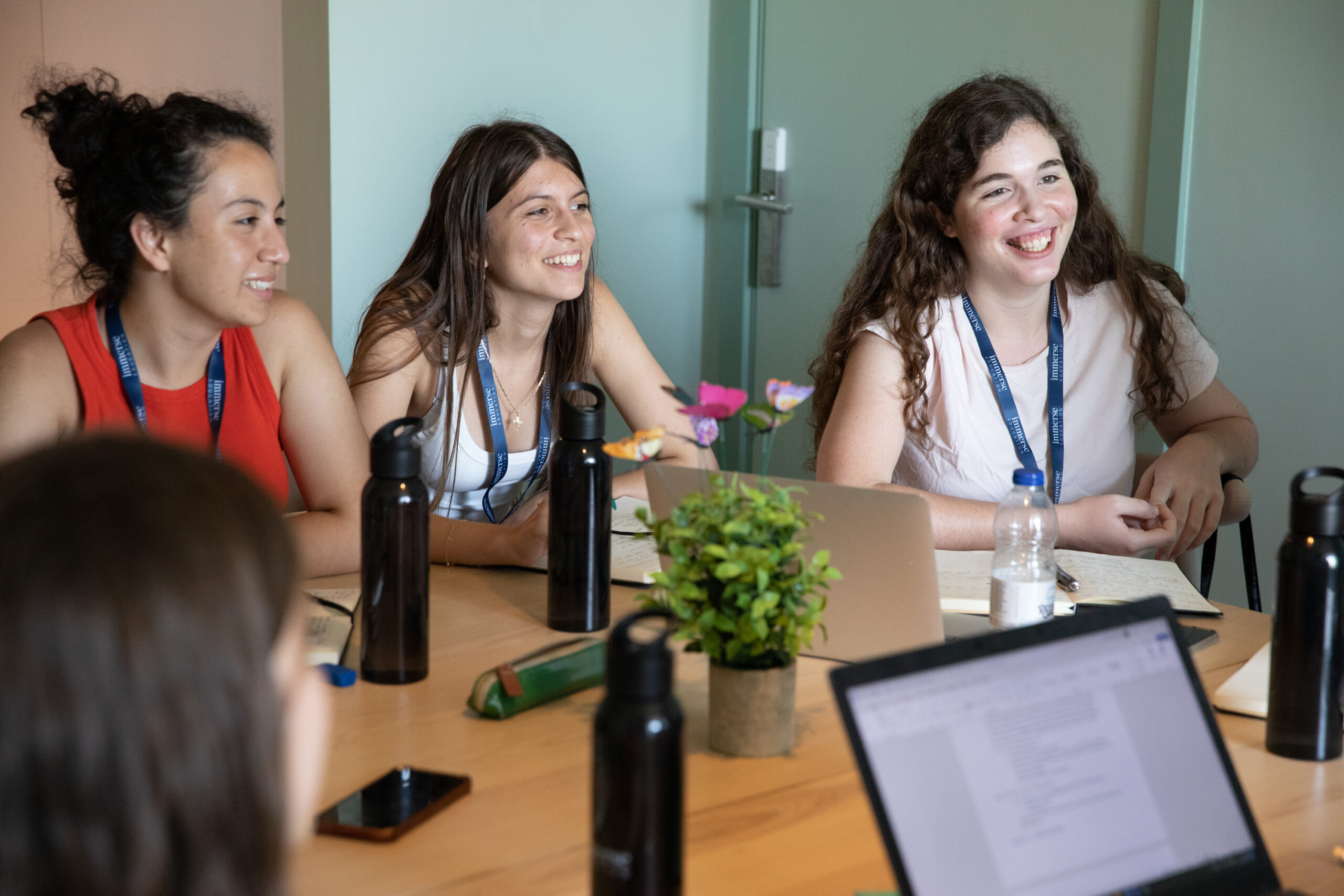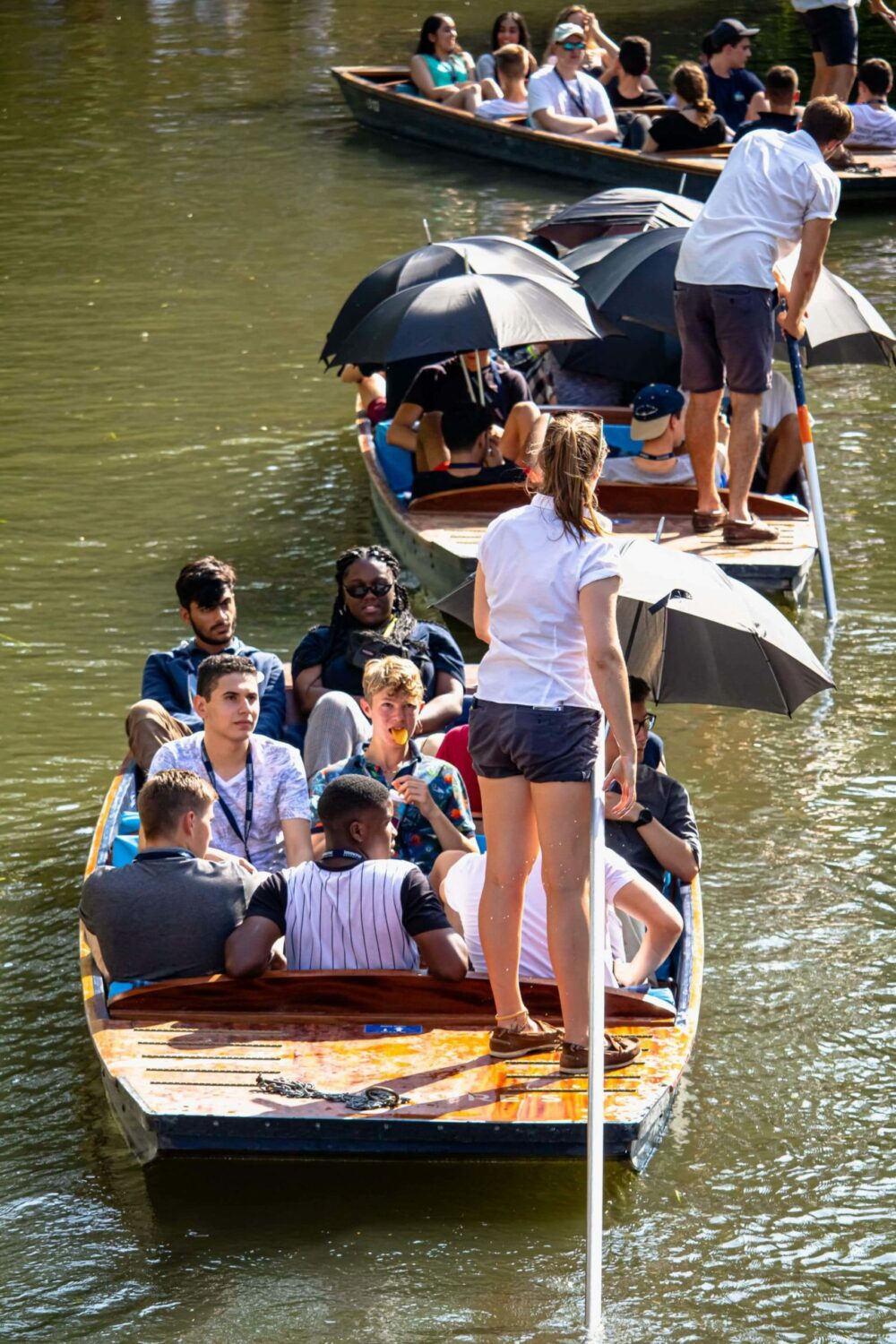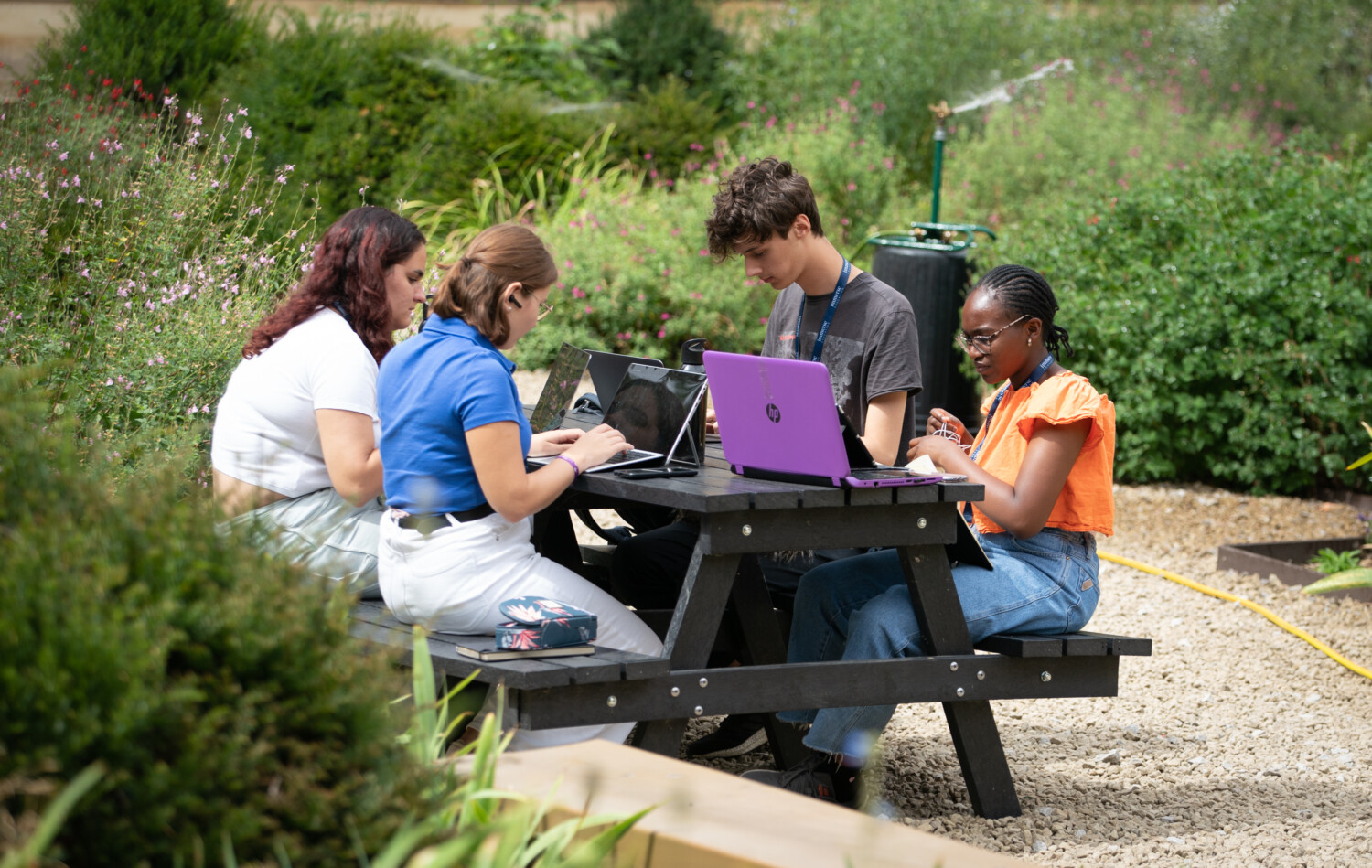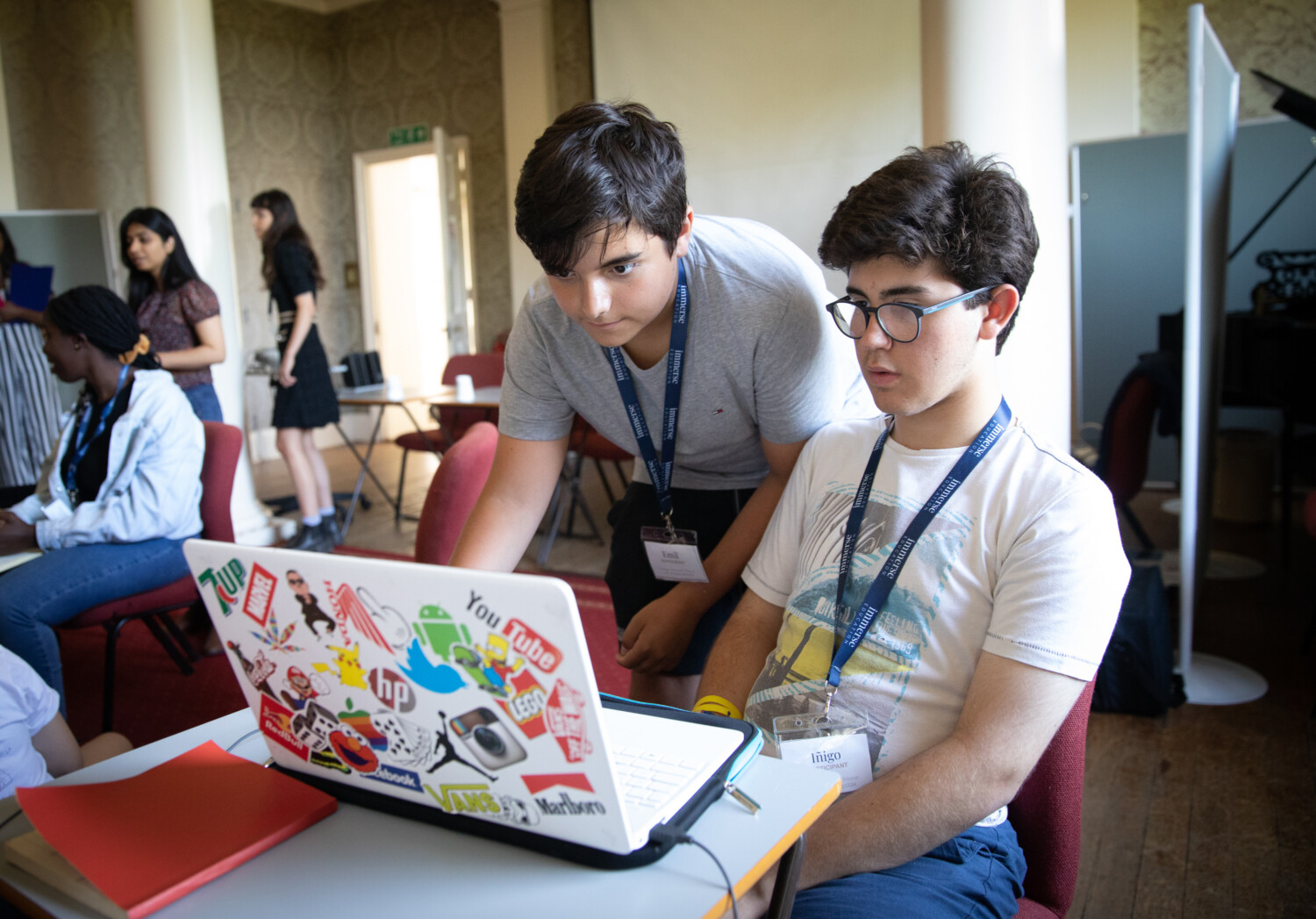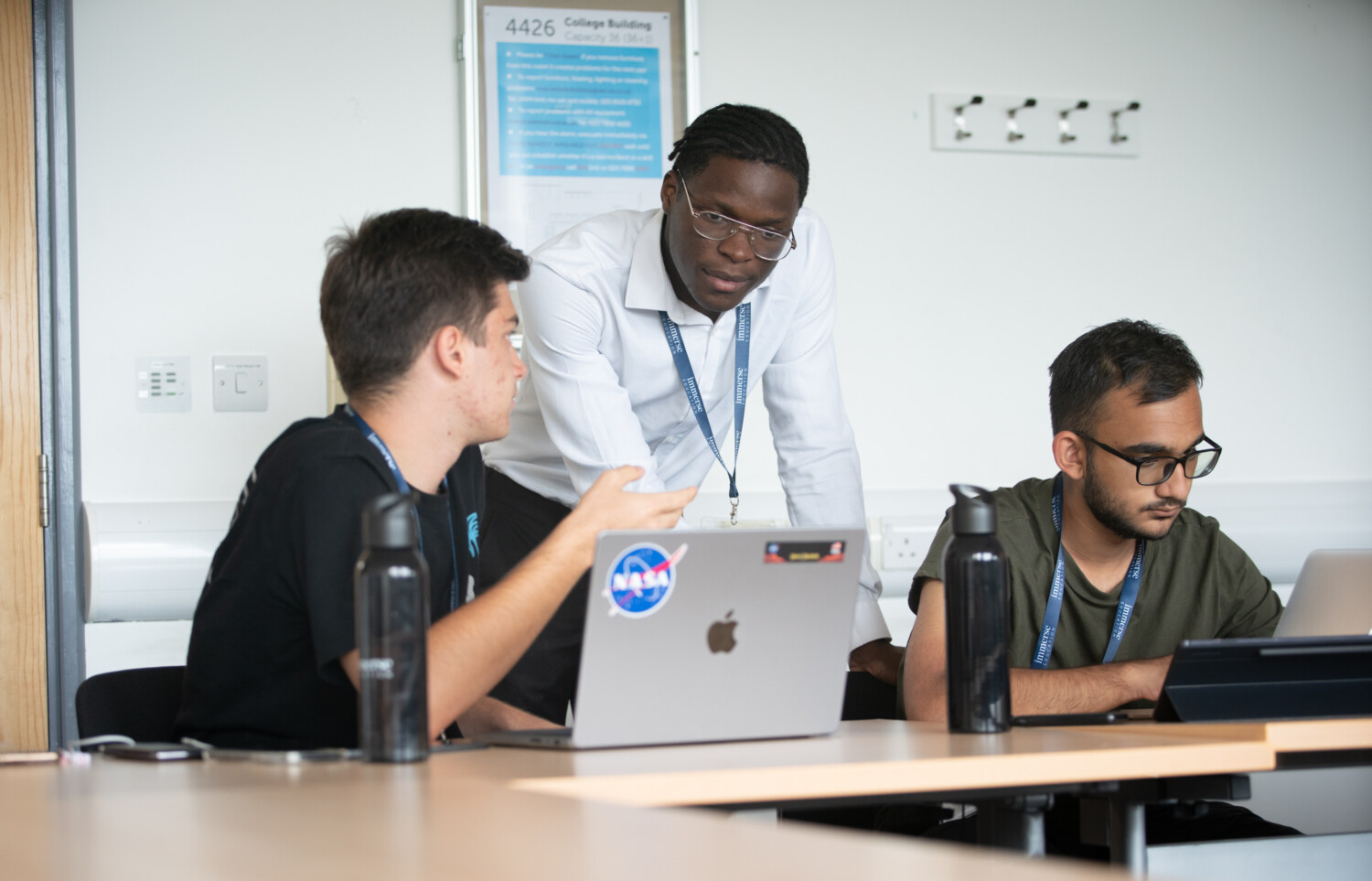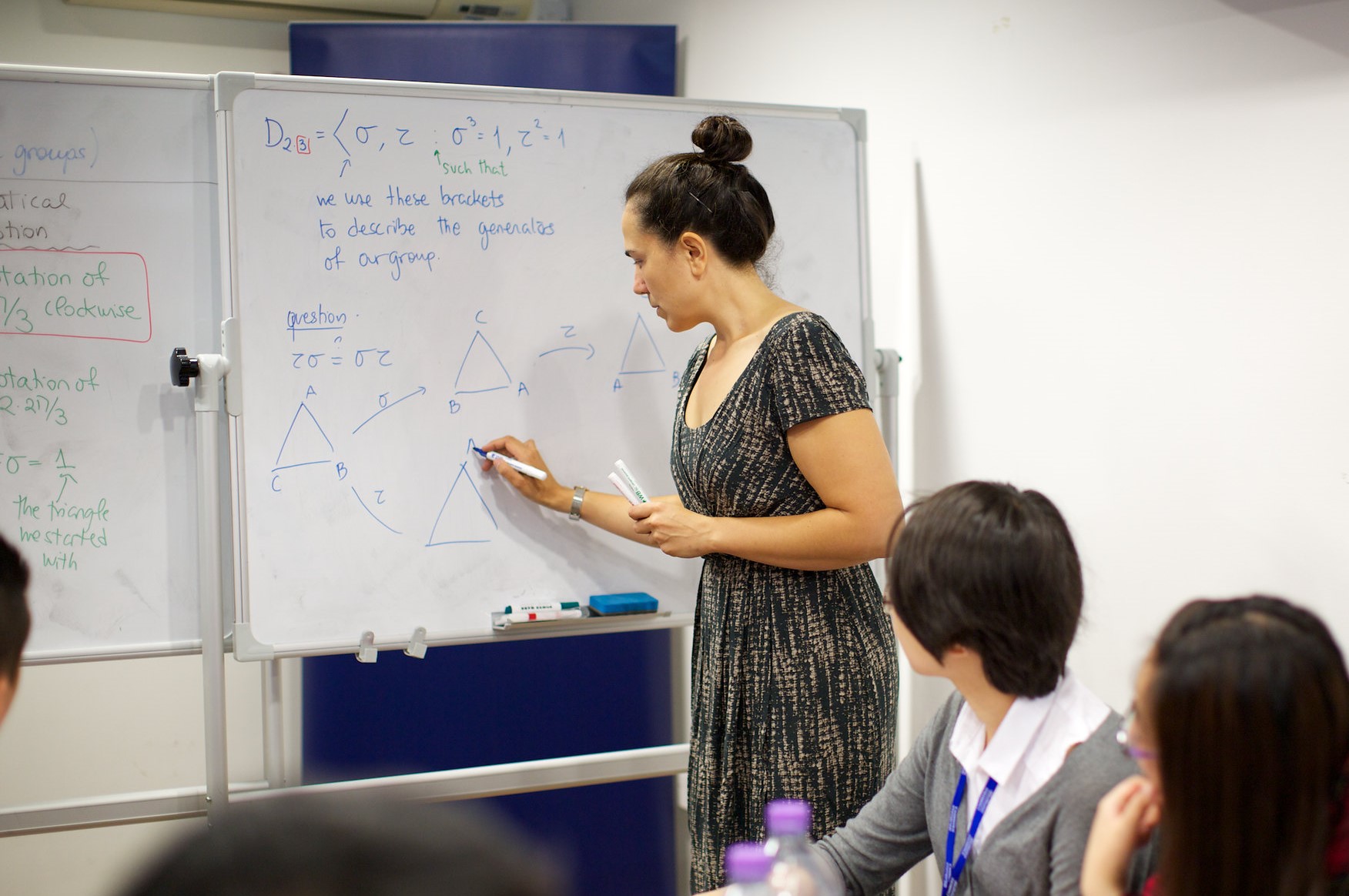Cambridge Coding Summer School (Ages 16-18)

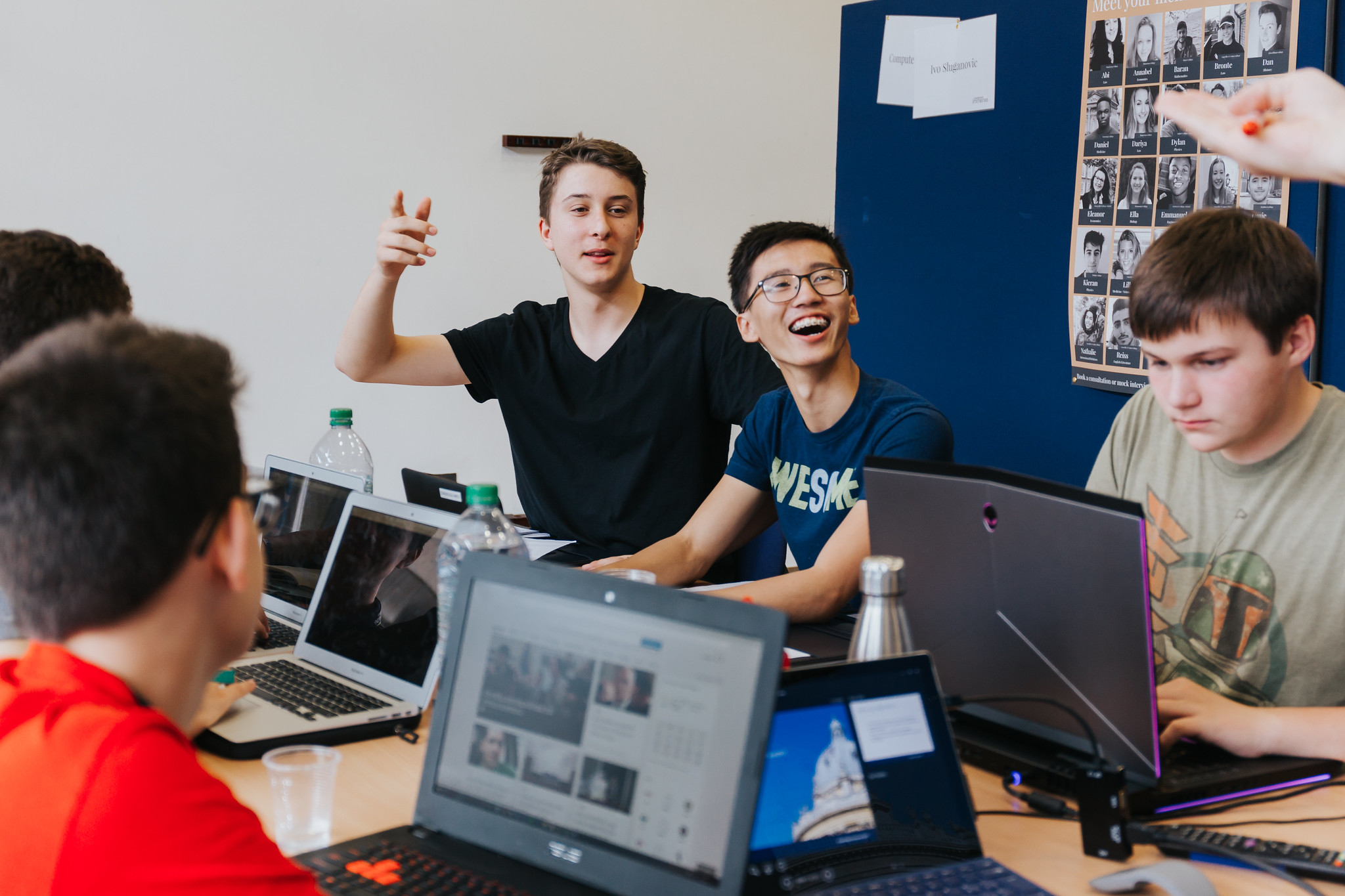
Advanced pre-university course in Coding in Cambridge colleges
Throughout the Immerse Education Coding summer school for 16-18-year-olds, you will be introduced to the topics that form the working knowledge of Computer Programming, reside at a Cambridge University College, and develop new skills as you work through a carefully constructed syllabus.
You will be equipped with insights to help decide if you should pursue studying Coding and computer programming at university level. You will learn first-year Coding topics such as using coding software including Python, Java, and coding for mobiles and apps, exploring a wide range of interesting topics and discussions within your class.
Learn directly from expert academics from world-class universities
You will explore novel concepts and share ideas in small groups of like-minded and ambitious peers from around the world. In small class sizes averaging 7 students, you will be guided by expert tutors who have honed their expertise through teaching undergraduate students at world-class universities, including the universities of Cambridge, Oxford, and Harvard.
Our rigorous vetting process guarantees that all participants are taught by engaging and supportive educators who are, most of all, enthusiastic about sharing their expertise to ensure our summer school teaching is of the highest quality. Immerse™ is an unrivalled academic experience.
-
Average class size of 7
Maximum class size of 10 students -
1:1 tutorials
Supportive, challenging and engaging -
Academic workshops
Develop a practical understanding of your subject -
World-class tutors
Academics from Oxford and Cambridge
Boost your confidence and develop key attributes in academic skills workshops
Our workshops are geared towards unlocking participants’ potential, giving them the tools to prepare for the next steps of their education and future goals. Build upon existing study skills to support future university-level learning.
These workshops explore a diverse and enriching range of topics – past examples have ranged from ‘Productivity tips’ to ’21st Century Technology Skills’. We’re sure that you’ll learn something completely new. Unlike traditional schools, Immerse allows you to learn beyond the traditional curriculum.
This programme is designed for students with at least an upper-intermediate level of English (B2). If you are unsure if you meet this requirement, please contact advisor@immerse.education.
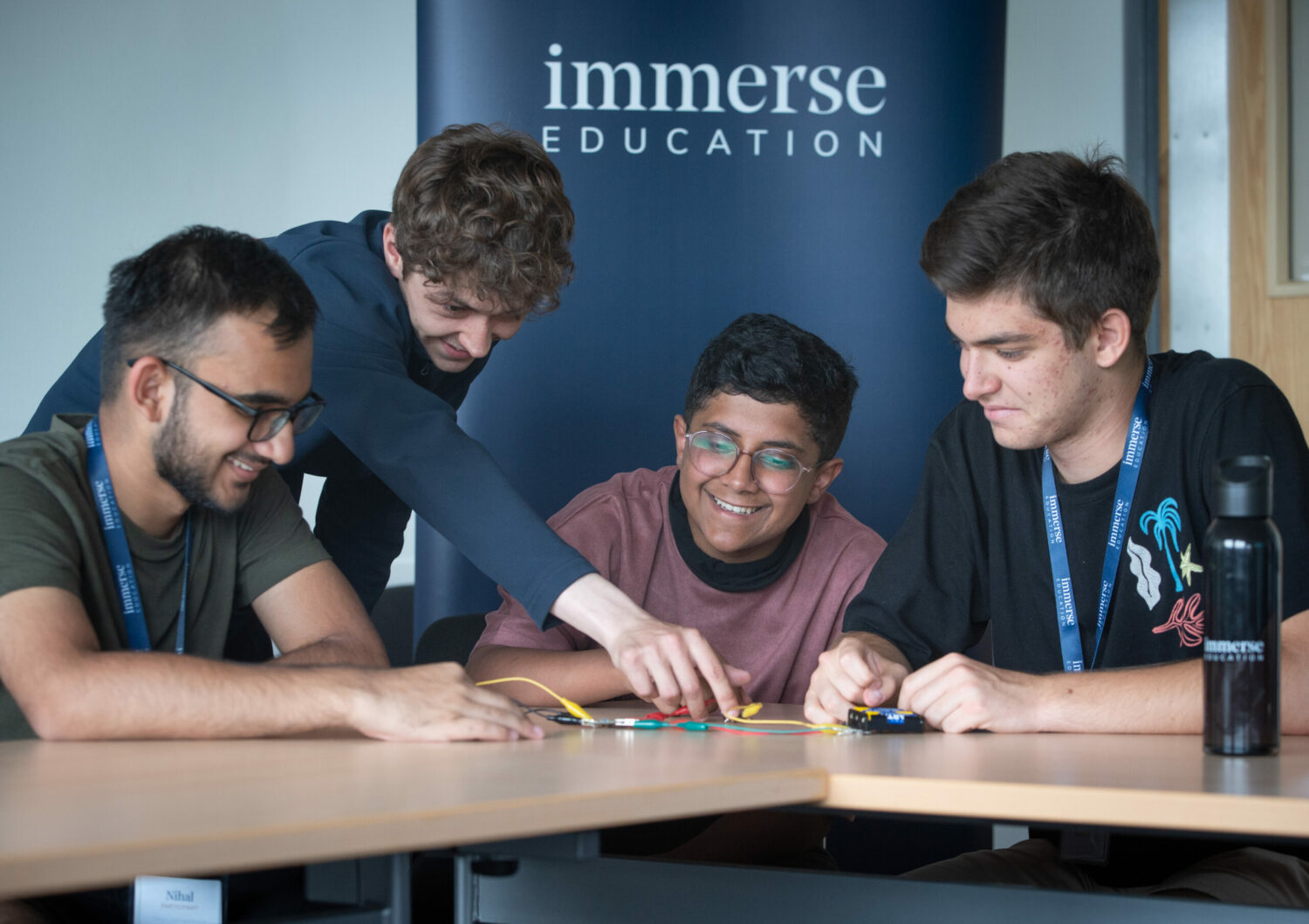
-
Certificate & detailed participant evaluation
All participants receive an individual report from their tutor -
Personal project or Creative portfolio
Develop a personal project or a creative portfolio to present at the end of the course -
Experience Oxbridge life
Live and learn like an Oxbridge undergraduate -
Enhance key academic skills
Interview skills, academic writing and presentation

Example tutor:
Younesse K
Guest speakers from previous summers
Dr Lynda Shaw
Abi Oyepitan
Dr Nigel Warburton
I’ve enjoyed meeting new people with Immerse, people who have different passions than I do and are studying different courses – I have learned a lot from them.
Lady Margaret Hall, the college I’m staying in, is such a beautiful college. It’s got so many different areas we can study and play and have fun. I’ve also been learning so much about computer science, which is something I really enjoy.
I’m finding the course content extremely useful. I’ve learned so much in these two weeks and we’ve covered so many new topics that I hadn’t heard of. The relationship with my teacher has been fabulous – I can communicate with him very easily, and the teaching style is what I had expected, with university-style teaching methods.
I think this program has really helped me to to change my ideas about what I could expect from university, and it’s really helped me to make sure I enjoyed what I want to study in the future.
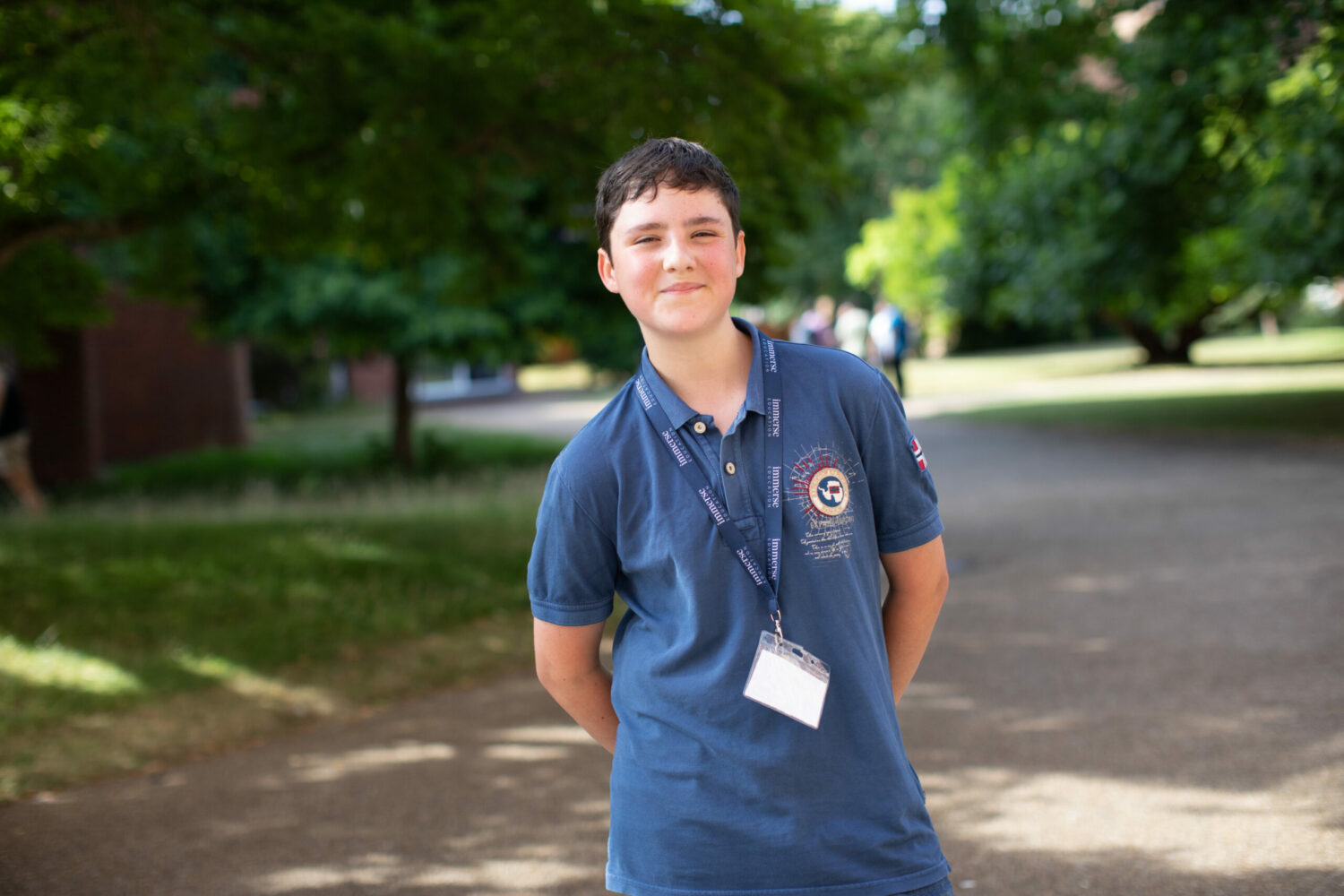
Work hard, play hard.
Action-packed social programme
Outside of lessons, we are proud to offer a busy and diverse social programme to help you get the most out of your time in Cambridge. This includes activities such as punting on the River Cam, zorb football and a murder mystery night in the college.
There are also two excursions during the programme, one day trip to visit Oxford and its constituent colleges, as well as an optional day out in London, seeing the city’s most famous landmarks as well as some free time for shopping. Those who choose not to travel to London are invited to afternoon tea in Cambridge.
Activities and excursions are run by our team of friendly mentors – whose main job is to maximise your enjoyment.
Work hard, play hard.
A unique social programme.
Experience traditional 'Formal Hall'
Formal Hall is a traditional weekly meal that takes place in every college. This is an opportunity for students to dress up, dine by candlelight in the magical surroundings of a Cambridge college’s dining hall.
As an Immerse student, you will experience formal dinner three times during your stay – once per week in Cambridge, as well as in an Oxford University college on the excursion day.
Formal hall is truly a memorable occasion, so remember to bring some smart clothes!
A unique social programme.
Live and study in a
Cambridge University College
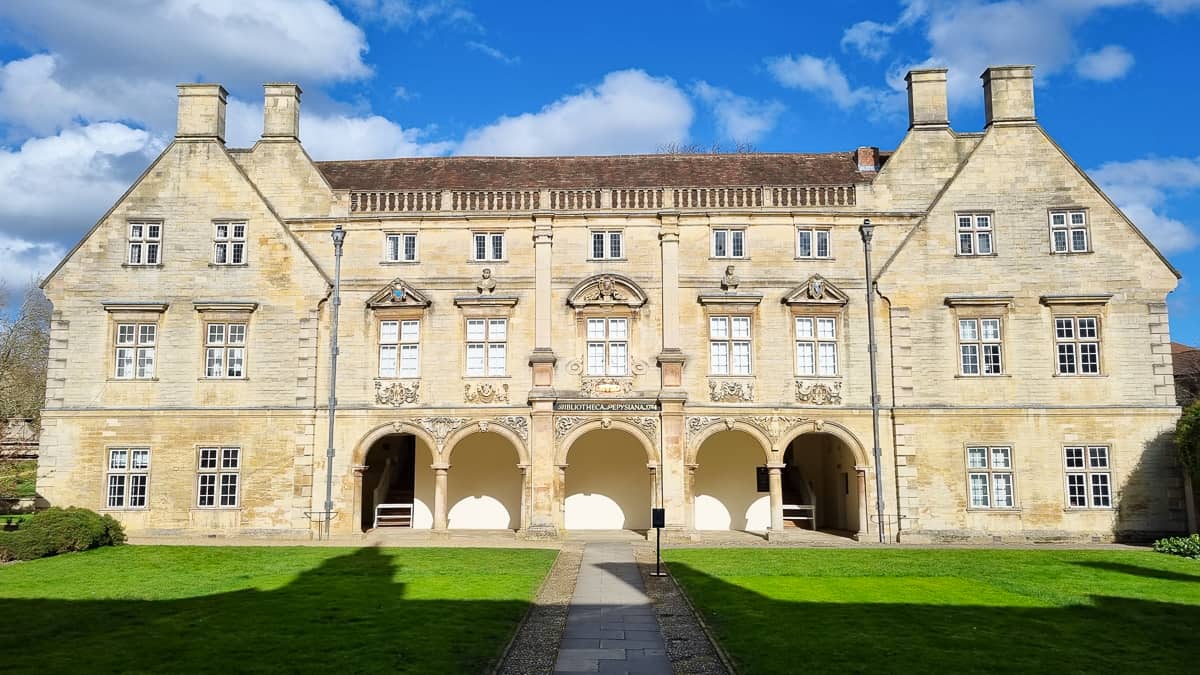
Experience life as a Cambridge University undergraduate
All participants will be allocated to a college a few weeks before arriving, based on their dates and subject choice.
If you would like to stay in the same location as a friend/sibling – please let us know and we will do our best to arrange this, where possible.
Males and females have separate accommodation in every college, and there is wi-fi available throughout.
For more information, please visit this page.
Student Welfare & Safety
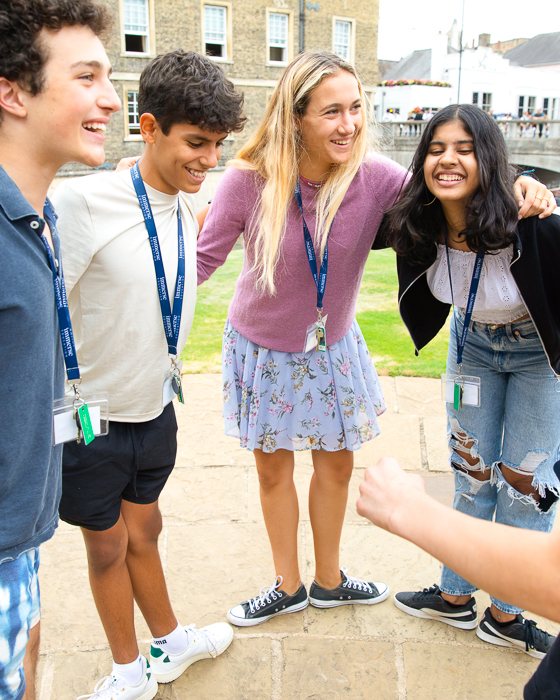
An accredited provider of academic short courses
Immerse Education is accredited by the British Accreditation Council (BAC), the leading mark of educational quality for the academic sector. Our accreditation with the BAC sends a positive and clear message to students and partners that they are studying with a trusted and reliable provider who has met a series of globally recognised quality assurance standards, both in terms of academic provision and student welfare.
The safety and well-being of our participants is our number one priority, and all staff undergo enhanced background checks and receive thorough safeguarding training before interacting with any students.
For more information, please visit our Pastoral Information page.
Meet some of our mentors and
college managers
-
FreyaFreya is a third year Medical student at St John's College, Oxford University. She is a keen runner and cyclist and has recently enjoyed taking up college rowing.
-
JemMentor
-
Lily-MaeMentor
-
PoppyMentor
-
SophieMentor
Immerse™ Coding Example Modules
-
Module 1 - Introduction to Coding
Coding is the process of telling a computer what to do. You provide the computer instructions via ‘code’, the computer’s language, in order for it to perform a specific action. This can be as simple as adding code on a webpage to change the colour font to the code that informs traffic lights to change behaviour based on the flow of traffic. Coding is now integral to a vast number of industries, including healthcare, businesses, and schools (to name a few). In this module, you’ll learn the basics of coding, establishing a foundation that will be built on throughout the rest of the course. -
Module 2 - Introduction to Python
In this module, you’ll explore the most widely used programming language: Python. You will learn how to interpret error messages as well as read basic Python syntax, all while forming an understanding of basic programming concepts. You will have the opportunity to apply your understanding of Python to the real world by creating your own simple app designed to solve a problem. -
Module 3 - Introduction to Game Design
This module takes a look at coding through a game design lens. You will learn how to use code to custom behaviours and game mechanics using coding best practices. By the end of this module, you will have a firm understanding of essential programming concepts such as variables, branching, looping, events and how these tools are the building blocks of game design. -
Module 4 - Java Coder
In this unit, you will be introduced to Java Coder meanwhile learning how to theoretically examine coding logic using flowcharts and pseudo code. You will continue building on your understanding of coding best practices built in previous units as well as learning how to solve coding problems through solution building, as well as learning how to write code independently. You will also learn how to minimise the number of lines of code and functions in order to develop a more efficient coding process. -
Module 5 - Coding Languages
In this unit, we will take a brief look at the various coding languages available to use in computer programming for different purposes. You will learn the differences between coding languages and develop an understanding of the languages that are easier and more convenient to use for different purposes. We will explore certain programming languages that are more machine-friendly, making them faster to execute and more memory-efficient, but harder for humans to understand. -
Module 6 - Web Development Masterclass
The growth of languages like JavaScript and frameworks like Angular, React, and Node JS have over the years made web development a lot easier and faster. In this unit, we’ll take a look at how JavaScript and the relevant frameworks work together to provide the essential tools for web development and apply these to your own web building project. -
Module 7 - Coding for Mobiles & Apps
Did you know that the average mobile phone in 2022 is faster than the average computer ten years ago? Coding has played a pivotal role in the way phones work, which is why in this module we’ll take a look at how coding has changed over time in relation to mobile devices and the revolutions in mobile app development. You will apply your knowledge to create a more complex mobile app, using programming concepts to solve problems and build user-oriented solutions. -
Module 8 - Design and Analysis of Algorithms
An algorithm is a sequence of steps used to solve a problem in computer programming. The design and analysis of algorithms are essential when designing processes to solve different types of problems in the branch of computer science and information technology. This module introduces the fundamental concepts of designing strategies, analysis of algorithms, as well as graph theory and sorting methods. By the end of this unit, you will also have a basic understanding of the Complexity Theory and its applications in the world of coding.
Request syllabus overview
Request syllabus overview
-
30th June – 13th July 2024
-
14th – 27th July 2024


